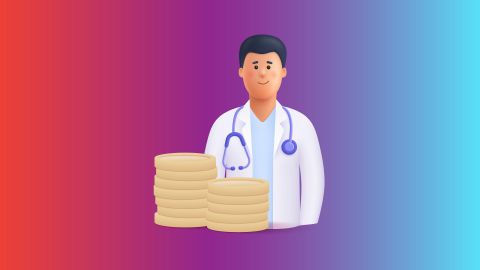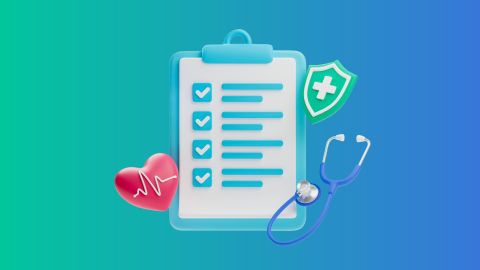Forensic pathologists carry a variety of responsibilities, including:
- Conducting autopsies: Examining bodies to determine the cause and manner of death
- Analysing tissue samples: Microscopically investigating tissues for disease
- Toxicology reports: Testing for substances like drugs and poisons
- Documenting findings: Creating detailed reports for legal use
- Testifying in court: Providing expert testimony during trials
- Collaborating with law enforcement: Assisting police and attorneys in understanding medical evidence
- Educating: Teaching medical students and law enforcement about forensic pathology
Where do forensic pathologists work?
Forensic pathologists typically work in a variety of settings, including:
- Medical examiner offices: Conducting autopsies and investigations
- Hospitals: Working within pathology departments
- Forensic laboratories: Analysing evidence collected from crime scenes
- Law enforcement agencies: Assisting in criminal investigations
- Universities: Teaching and conducting research in forensic sciences
Specialisations of forensic pathologists
Forensic pathologists can specialise in different areas such as:
- Neuropathology: Focusing on diseases of the nervous system
- Forensic anthropology: Identifying human remains
- Toxicology: Study of the effects of chemicals on the human body
- Paediatric forensic pathology: Investigating infant and child deaths
Skills and qualities required to become a forensic pathologist
- Strong medical knowledge: A deep understanding of anatomy, pathology, toxicology, and disease processes is essential for accurate cause-of-death analysis.
- Analytical thinking: Ability to assess complex evidence, interpret medical findings, and draw logical, unbiased conclusions.
- Attention to detail: Small clues in tissues, wounds, or reports can be crucial in determining what happened.
- Emotional resilience: Comfort with handling death, traumatic cases, and distressing situations while maintaining professionalism.
- Objectivity and integrity: Decisions must be evidence-based, impartial, and legally defensible.
- Excellent communication skills: Ability to write clear reports and present findings confidently in court as expert testimony.
- Collaborative mindset: Works closely with law enforcement, forensic experts, and legal teams.
- Scientific curiosity: Interest in solving medical mysteries and staying updated with new forensic techniques.
- Time management: Handles multiple cases efficiently while meeting legal deadlines.
How to become a forensic pathologist?
Following are the steps to follow to become a forensic pathologist:
Step 1: Obtain the required qualifications for medical school
To apply for MBBS, you must complete Class 12 with Physics, Chemistry and Biology and qualify for NEET. A strong academic record, relevant extracurricular activities and volunteering in healthcare settings can add value to your application.
Step 2: Complete your MBBS degree
Pursuing an MBBS from a recognised medical college gives you the foundation to practise as a doctor. The course usually takes 5.5 years, including a one-year internship. During this period, you study various areas of medicine that form the base for later specialisation in forensic pathology.
Step 3: Undertake internship and foundation training
After MBBS, doctors undergo a compulsory internship across different specialisations. This training helps you gain exposure to multiple fields and decide your preferred career path. It is the stage where you prepare to apply for postgraduate programmes in pathology.
Step 4: Register with the Medical Council of India (MCI/NMC)
Registration with the National Medical Commission (formerly MCI) is mandatory to practise medicine in India. You must provide proof of qualifications and complete the necessary assessments to obtain your licence before moving into higher specialisations.
Step 5: Enrol in MD Pathology and pursue forensic specialisation
The next step is to pursue an MD in Pathology, which typically lasts three years. After completing MD, you can opt for a DM (super-speciality) or fellowship in Forensic Pathology. These programmes cover histopathology, toxicology, autopsy practices and courtroom procedures.
Step 6: Clear qualifying and speciality exams
During your MD and fellowship, you need to pass various university and national-level examinations. Clearing these exams ensures you have the required medical and forensic knowledge to advance in the field.
Step 7: Apply for forensic pathologist roles
Once qualified, you can apply for positions in government hospitals, state forensic labs, medical colleges or law enforcement bodies. Some forensic pathologists also work as consultants with police departments or judicial systems.
Step 8: Gain practical experience
Working on real cases helps you build expertise. Experience in autopsies, toxicology reports and providing expert testimony in court strengthens your profile. Over time, this can lead to senior roles in forensic departments or advisory positions.
Step 9: Explore teaching and research opportunities
With experience, you may choose to teach forensic medicine in medical colleges or contribute to research. Many forensic pathologists also train junior doctors and medical students, helping to advance the field in India.
How long does it take to become a forensic pathologist?
Becoming a forensic pathologist typically takes around 13 years, which includes completing pre-medical education, medical school, a residency, and a fellowship.
Forensic Pathology and Its Role in the Indian Legal System
- Establishes cause and manner of death: Forensic pathologists perform autopsies to determine whether a death was natural, accidental, suicidal, or homicidal—critical for criminal investigations.
- Supports law enforcement: Their findings guide police in reconstructing events, identifying suspects, and ruling out foul play.
- Provides medico-legal documentation: Autopsy reports, injury analyses, and toxicology findings form essential evidence used in courts.
- Expert courtroom testimony: Forensic pathologists present scientific conclusions before judges and lawyers, helping interpret medical facts accurately.
- Validates evidence in suspicious cases: They examine wounds, poisons, burns, and trauma patterns to connect injuries with possible weapons or incidents.
- Crucial in custodial and unexplained deaths: Their assessments ensure transparency and accountability in sensitive cases.
- Contributes to public justice: By offering unbiased, scientifically grounded opinions, they help prevent wrongful convictions and ensure fair legal outcomes.
- Supports public health: Identifying disease outbreaks, drug trends, or environmental hazards aids policy-making and prevention efforts.
Difference between forensic pathologist and medical examiner
The table below highlights the major differences in roles, qualifications, and responsibilities between a forensic pathologist and a medical examiner.
Feature
|
Forensic Pathologist
|
Medical Examiner
|
Primary Role
|
A medical doctor trained to examine deceased individuals and determine the cause and manner of death.
|
A government official responsible for overseeing death investigations within a jurisdiction.
|
Qualifications
|
Must hold an MBBS/MD with specialised training and certification in forensic pathology.
|
Usually a forensic pathologist, but in some regions can be another type of licensed physician, depending on rules.
|
Key Responsibilities
|
Conducting autopsies, analysing tissues and fluids, performing toxicology tests, collecting forensic evidence, and presenting findings in court.
|
Supervising death investigations, reviewing autopsy reports, certifying cause and manner of death, and coordinating with police and forensic experts.
|
Focus
|
Detailed medical examination and scientific study of the body and evidence to identify the cause of death.
|
Broader duties including administration, supervision of investigations, and serving as the legal authority for certifying deaths.
|
Work Setting
|
Forensic labs, mortuaries, medical examiner offices, or universities.
|
Primarily work in government roles, managing teams of forensic pathologists and investigators.
|
Autopsy
|
Personally performs autopsies and detailed medical examinations.
|
Oversees death investigations and ensures autopsies are carried out by forensic pathologists.
|
Conclusion
However, pursuing a career in forensic pathology often involves significant educational and training expenses. To ease the financial burden, consider a doctor loan or professional loan from Bajaj Finance. This specialised loan offers flexible financing tailored for medical professionals, making it easier to cover tuition fees, training costs, and other expenses related to both forensic pathology and healthcare finance. However, before you apply, it’s important to understand the eligibility requirements based on your medical qualifications, practice experience, and documentation needs, learn more about the doctor loan eligibility from Bajaj Finance. With a Bajaj Finserv Doctor Loan, you can focus fully on your studies and career goals, knowing you have the financial support to reach your professional aspirations in forensic pathology. Prospective borrowers can also take advantage of competitive doctor loan interest rate options that make repayment easier over the long term.





